If you love the outdoors, then you know what is absolutely essential to have rope with you on every trip. Having the right kind of rope on the campground or trail will not only make your life easier, but it can also save you in dangerous situations.
So, what’s the best rope for outdoor use? Read our guide on different types of rope along with the variety of ways to use them on your next outdoor experience.
Best Types of Rope for the Outdoors and Their Uses
Twisted Rope
Also known as laid rope, the twisted rope is made of three strands twisted together, which make it look like a spiral. Twisted rope usually comes in one of the following materials: nylon, polypropylene or polyester, but it can also be made of cotton or other natural fiber.
Synthetic twisted rope varieties
The twisted rope varieties made of synthetic materials are quite inexpensive and widely available. They might not be the strongest types of rope out there but are most resistant to rotting and mildew. In addition, they float and are impermeable to water, which makes them perfect for the outdoors, especially if you know that the rope will get wet, such as boating.
Cotton twisted rope
Cotton rope, on the other hand, is the softest and can be used for a number of projects such as wedding decorations, dog leashes, dog toys, macrame, interior design, simple restraints, or cozy hammocks for your backyard.
Manila rope
Another natural twisted rope alternative is Manila rope, also known as hemp rope, which is made from the Abaca plant. Like the cotton variety, this natural fiber rope is quite soft on the hands, and you won’t need to use gloves while handling it.
If it becomes wet, Manila rope shrinks, but on the plus side, it’s resistant to salt water. Note: make sure the Manila rope is completely dry before you store it; if you store it wet, it will quickly rot or get damaged by mildew.
This rope is known to be quite strong and easily absorb perspiration, which makes it perfect for gyms and climbing systems. If you’re planning a game of ‘Tug of war’ or exercise climbing, Manila rope is your best choice!
Finally, Manila rope is known as one of the ‘greenest’ rope options due to the fact that it decomposes over time. Besides being a very popular option for interior decoration, Manila rope is often used by designers and contractors in landscaping. You will see it a lot in fences, piers, pathways, gardens, decks, etc.
Braided Rope
Smooth braid rope
Braided ropes are made by weaving fiber strands. They can be double braided (consisting of one braided rope inside the other) or hollow (consisting of a woven core only). The former option is, of course, more suitable for the outdoors since it is UV resistant, stronger, and more resilient to abrasion.
Made from polyester, smooth braid rope is perfect for any weather conditions and ideal for outdoor adventuring and recreation – traveling, camping, backpacking, hiking, fishing, hunting, you name it.
Moreover, due to being lightweight and its high break strength, smooth braid rope is crucial for all survival kits in case of emergency situations. No wonder all cavers and mountaineers rely on it!
Solid braid utility rope
Another braided rope alternative which is great for the outdoors is the utility cord. This type of rope is meant for heavy-duty usage and is widely utilized by professional rescuers, military, mountaineers, and fire brigades.
Its durability, resilience, and strength make it a perfect choice for various outdoor activities such as scuba diving, kiting, and sailing.
This rope is favorite among fishermen, especially those that prefer spearfishing since its high visibility easily attracts the fish. On top of that, the solid braid utility rope is ideal for any weather conditions – it floats in water and is not susceptible to rotting.
Bungee Cord
This cord has an elastic core (band) with a nylon, cotton, or polypropylene cover and commonly comes with hooks at the end.
Bungee cords are resistant to UV radiation and moisture, which makes them ideal for everyday uses, sports, and outdoor activities, especially hiking, kayaking, boating, and camping.
You know that line that holds tents together? That’s bungee cord. It is also often used for fastening loads as well as bundling up gear like tubes, sleeping pads, or canoe paddles. You’ll find it in most camping stores in all lengths and diameters.
The bungee cord is long-lasting but the elastic wears out after long-term exposure to the environmental conditions and stretching. That’s why you need to check it for wears and tears before every use. Also, be careful not to pull the rope too tightly because it may snap at you.
Composite Cord Rope (Kernmantle Cord Rope)
The word ‘kernmantle’ is of German origin: ‘kern’ translates as ‘core’, whereas ‘mantel’ means ‘jacket’. Parachute cords are kernmantle rope.
The kernmantle composite cord has a shock-absorbent core made of nylon and a polyester cover.
Their stretchiness is what makes these ropes perfect for other purposes in the outdoors - you can use them to tie down loads in your truck or to tie your kayak/canoe to the dock.
Although kernmantle ropes are highly resistant to abrasion, they’re still soft enough to provide great holding power and easy to grab. This softness makes kernmantle ropes very useful even in non-life safety situations, such as towlines and as comfortable pet leashes.
In Conclusion
We’ve covered some of the best ropes for outdoor use - classic twisted ropes, braided ones, bungee cords, and composite cord ropes. They demonstrate the variety of materials and designs, along with the best use for each rope in the outdoors.
Knowing the downsides of each type of rope will come in handy depending on whether you are looking for outdoor hiking or just using the rope for outdoor decoration. Understanding the different features and uses will help you choose the right type of rope for your next outdoor adventure.


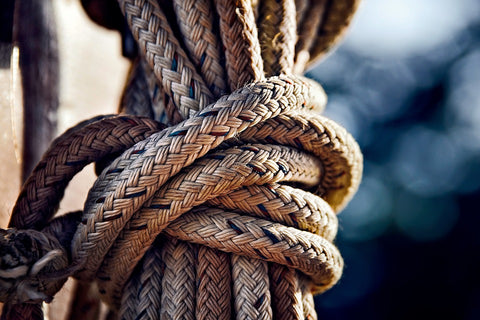
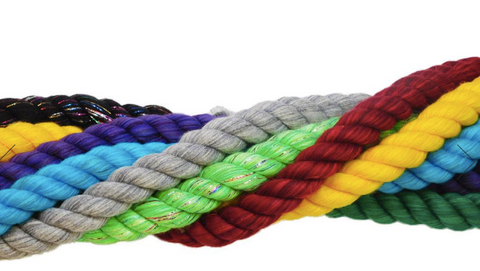
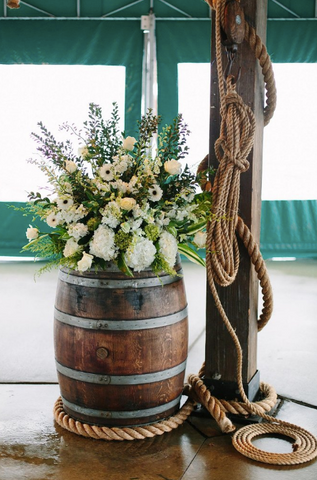
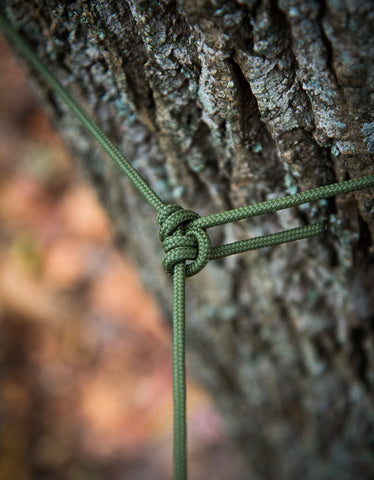
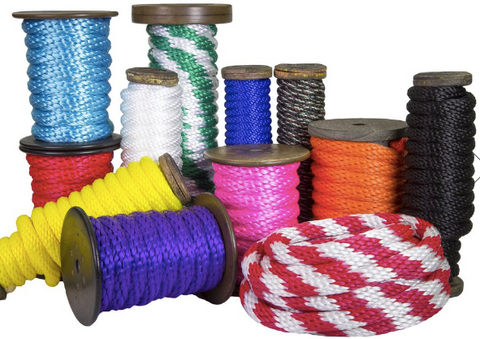
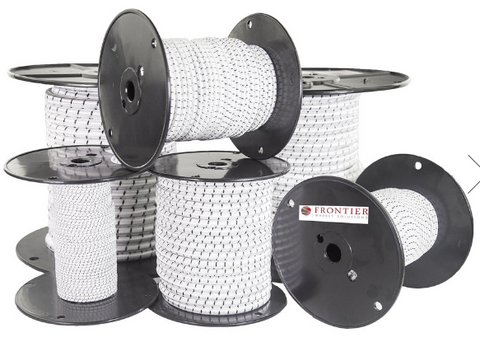
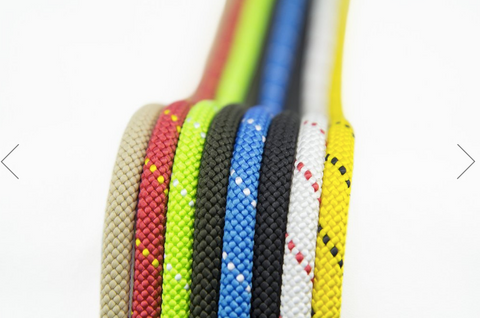
Comment
What is the best cord / rope to use to transforming an indoor sofa to become outdoor furniture – plan to use this rope to weave the seating areas thus don’t want the rope to stretch or weave becoming deformed because someone is sitting on it… Nylon feels really rough on bare skin as well as being too slippery to weave…
Thanks